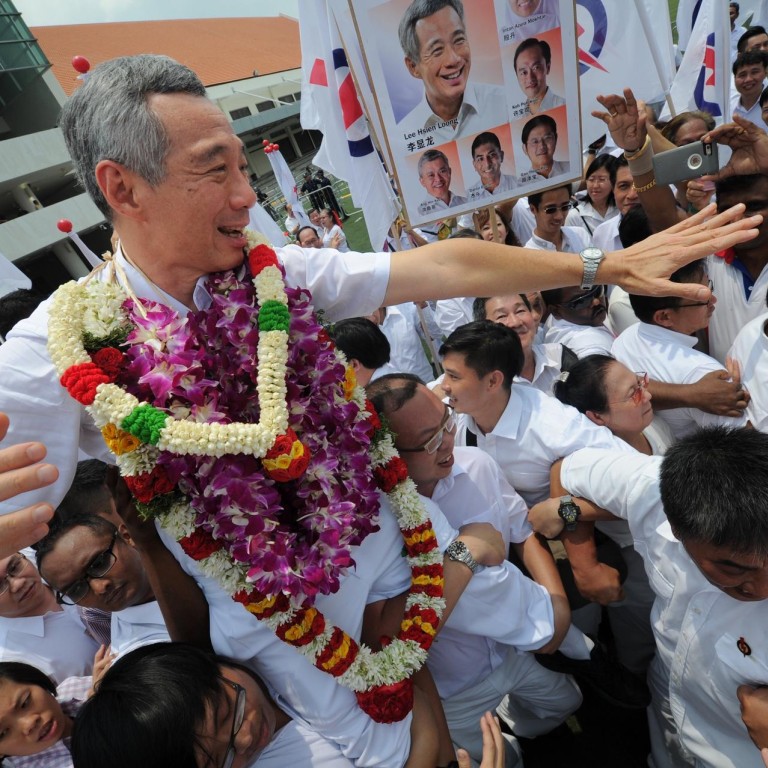
Singapore's ruling party hopes to capitalise on national mood of reflection as election campaign begins
The PAP has seen its vote share drop since 2001, hitting a record low of 60.1 per cent in the last election in 2011.
Singapore's ruling party is facing for the first time an electoral fight in all 89 seats as campaigning began yesterday in one of Asia's most politically tepid countries.
Almost everyone believes the People's Action Party (PAP) will win by a margin other developed democracies would consider a handsome victory. But the party, in power for 56 years in a row, is taking no chances as it gears up for a short but bruising battle against its main rival, the Workers' Party (WP).
The PAP will pit its nostalgia-tinted narrative of having delivered on promises to do right by voters against the latter's forward-looking platform of providing a check on the government.
The polls, to be held on September 11, will mark the first time the party and country are with-out the guiding presence of the late leader Lee Kuan Yew, who died in March.
His death came five months before the nation celebrated its 50th year of independence in August. Both events prompted a bout of introspection about Singapore's national identity. By calling the election 16 months before deadline, the ruling party is aiming to convert this mood into a resounding mandate.
"They certainly hope so," said analyst Eugene Tan from the Singapore Management University. "But I am sceptical that the two events will translate into votes. The PAP has to be careful that the nostalgia drives are not milked in such a manner to put off voters."
Its key opponents would rather focus on the years ahead. The WP's election manifesto is titled "Empower Your Future".
The party, which has seven elected Members of Parliament, urged voters to seize control of their lives and reject the interventionist ways of the PAP.
"What we relied on to succeed in the last 50 years may or may not necessarily be the same model and formula for us to continue to succeed in the future," WP chief Low Thia Khiang said.
The election, as is usually the case in Singapore, is not strictly about the formation of the next government. The overwhelming strength of the PAP makes that a foregone conclusion. None of the nine opposition parties are fighting for a majority of the seats.
Even the WP, which has the strongest presence, is contesting only 28 seats, less than a third of the total number of Members of Parliament. Instead, the key question is whether opposition parties, particularly the WP, can increase their presence in parliament. The WP currently has 8 per cent of the seats.
"If they are able to, it means that the trend that started in 2011 will continue and the country will inch towards perhaps not a two-party state but a more pluralistic democracy," Terence Chong from the Iseas-Yusof Ishak Institute said.
"The city state's first-past-the-post system does not reflect the fact that about 30-35 per cent of the votes always go the opposition. As such, more contestation and a more diverse parliament would not be an anomaly but a reflection of this reality."
The PAP has seen its vote share drop since 2001, hitting a record low of 60.1 per cent in the last election in 2011. Led by Prime Minister Lee Hsien Loong, the son of Mr Lee Kuan Yew, its aim is to halt or even reverse this slide.
The party has worked to address voters' displeasure on high public housing prices, public transport woes and influx of immigrants. It has also gone on the offensive, attacking the WP for its poor municipal management. And as it banks on the past, the call is for Singaporeans to give it a strong mandate in the future.
As Mr Lee Hsien Loong recounted in his National Day Rally speech last month, when his father was asked if there will be a Singapore many years from now, he replied: "Of course there will be… even better!"

